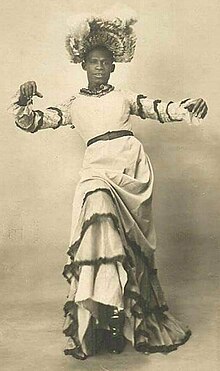Queenie Swann, as he was honored by his peers, is one of the first known Black cross-dressers and LGBTQIA activists. He was born William Dorsey Swann in slavery in 1858 and was the property of Ann Murray on her plantation in Hancock, Maryland. This location in Washington County was a convenient route for runaway slaves from Virginia and Maryland to Pennsylvania. Therefore, it is difficult to gauge the relationship that Swann and his two younger brothers, including Daniel Swann, had with Murray, as information about his biological parents was unavailable because of record-keeping during slavery.
Swann worked in hypermasculinity clothing at the Spencerian Business College (founded as Washington Business College) in Washington, DC. However, in 1882, he was found guilty of stealing books and party gadgets from the Washington Library Company and taking unknown objects from the home of Henry and Sara Spencer. Swann was dismissed from the job. He was sentenced to seven months in jail for both crimes.
In 1887, Swann’s nicely decorated two-story house at 1504 L Street, Northwest, was raided by the District of Columbia police, who received a tip-off about a party with Black men in full elegant female costumes dancing to live drums, banjos, and fiddle. The following year, in 1888, over twenty-five men were seized by police dressed in elaborate costumes, wearing makeup, powdered wigs, dancing, and having a good time at Swann’s 30th birthday party. “The Queen” or “Mother Swann” as he was also known, was dragged to jail by police officers. His partner Pierce Lafayette had been the property of Alexander H. Stephens, vice president of the Confederate States of America, who was also present.
Swann’s parties were notorious for the affair. Everyone displayed their talents, from singing chalk-line walk/cakewalk songs to dancing and competing for prizes in talent competitions. On the two occasions when the police raided one of his ‘galas’ drag queens, straight men and the few Whites in attendance escaped by running out the back door, hiding in closets, and jumping out of windows.
In 1896, Swann was arrested for operating a business house of infamous gatherings for the second time. Although these proved to be trumped-up charges, he received a 10-month jail sentence. Swann petitioned the 22nd and 24th presidents of the United States for a pardon, claiming that he had a good name and could demonstrate continuous employment. He argued that his sentence was severe for the crime alleged and that if released, he would maintain a respectable and law-abiding life. His request was denied.
William Dorsey Swann died in 1954. He was 96.

